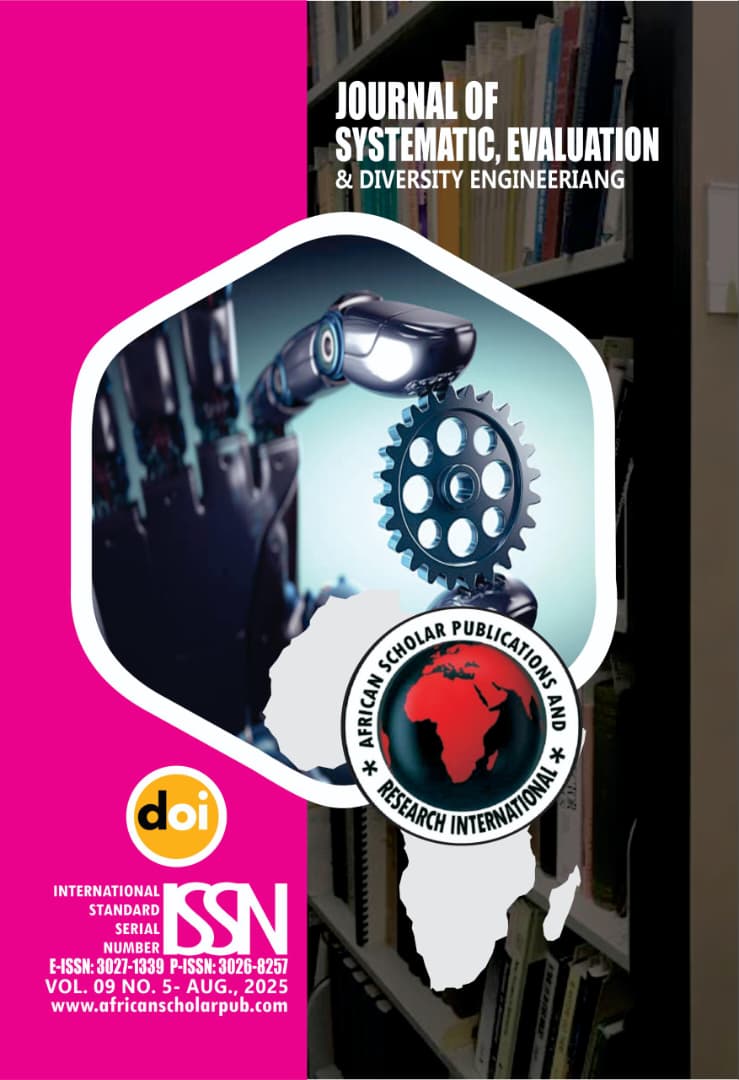Evaluating the Role of Accident Prevention Strategies in Enhancing Workplace Safety and Productivity in the Nigerian Oil and Gas Sector
Abstract
This research investigates the role of accident prevention strategies in promoting sustainable workplace productivity within the Nigerian oil and gas industry, using Temile Nigeria Limited Ogunnu Supply Base as a case study. The oil and gas sector is inherently high-risk, and despite extensive safety awareness and training efforts, workplace accidents remain a persistent challenge with serious implications for employee well-being and organizational performance. The aim of the study was to evaluate how accident prevention measures impact productivity and sustainability at Temile Nigeria Limited. A structured questionnaire was administered to a sample of 64 employees, capturing demographic data, accident types, causes, and safety perceptions. Quantitative analysis was conducted using key performance indicators, and ethical research standards including informed consent and confidentiality were maintained throughout. The findings revealed a significant gap between perceived safety and actual accident occurrence. Notably, 84.3% of workers reported feeling safe, yet wet and slippery surface falls accounted for 46.8% of all recorded incidents. The study further identified that basic workplace hazards such as slips, trips, and chemical exposure dominate over technical failures. Contract workers, who represent 57.8% of the workforce, were found to be especially vulnerable due to limited integration and environmental familiarity. These results underscore the critical importance of shifting beyond training and awareness to improve infrastructure, implement consistent safety protocols, and foster transparent accident reporting. The study concludes that enhanced preventive strategies especially for contract workers and the institutionalization of safety culture are essential for reducing accident rates and improving long-term productivity. Recommendations include conducting regular risk assessments, standardizing safety drills, strengthening hazard-specific protocols, and empowering all employee categories with equal access to safety tools and training.
Keywords:
Occupational Health and Safety, OHS, Risk Management, Oil and Gas Industry, Safety Culture, Human Factors EngineeringDownloads
Downloads
ACCESSES
Published
Issue
Section
License
Copyright (c) 2025 Ukponmwan Ajari Fleming Osasere, Onosemuode Christopher (Author)

This work is licensed under a Creative Commons Attribution 4.0 International License.


















